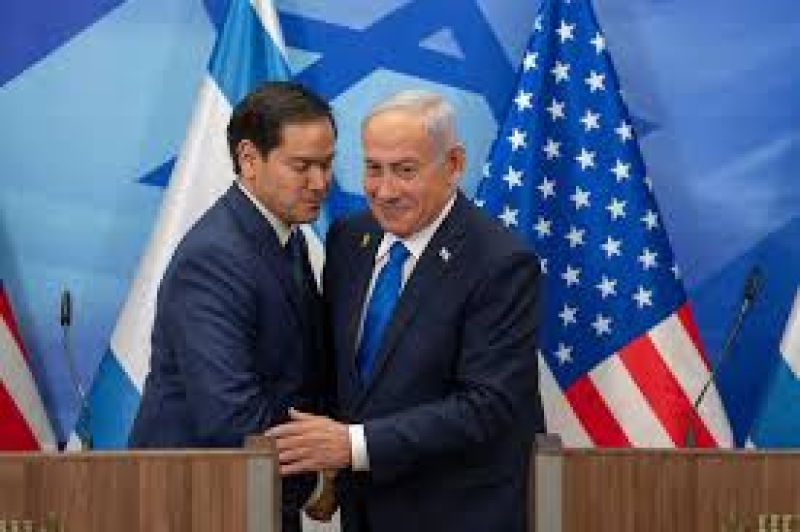- Militant Attacks Kill 33 in Balochistan; 92 Assailants Dead |
- Power generation at Payra Thermal Power Plant 1st unit starts after a month |
- Irregularities, injustice will no longer be accepted in politics: Jamaat Ameer |
- 2 arrested in Jhenaidah for allegedly selling madrasa student |
- Koko’s wife campaigns for Tarique in Dhaka-17 |
Netanyahu Supports Trump’s Gaza Relocation Plan

Israeli Prime Minister Benjamin Netanyahu has signaled his intention to move forward with U.S. President Donald Trump's proposal to transfer Palestinians out of Gaza, calling it "the only viable plan to enable a different future" for the region. Netanyahu's remarks came after discussions with U.S. Secretary of State Marco Rubio, who endorsed Israel's goal of eradicating Hamas, raising doubts about the future of a fragile ceasefire as talks on its second phase remain stalled.
Rubio is set to visit Saudi Arabia and the UAE next, where he may face resistance from Arab leaders regarding Trump's controversial plan. This proposal includes redeveloping Gaza under U.S. ownership, with Netanyahu emphasizing that emigration should be "voluntary." However, critics argue that the plan amounts to coercion given Gaza's extensive destruction.
Netanyahu stated that he and Trump share a "common strategy" for Gaza, with both leaders warning of dire consequences if Hamas does not release the remaining hostages abducted during the October 2023 attacks that led to the ongoing war. The first phase of the ceasefire ends in two weeks, but talks on the second phase—focused on the release of hostages and the potential withdrawal of Israeli forces—are yet to progress.
Trump's special envoy, Steve Witkoff, confirmed productive talks with Netanyahu and mediators from Egypt and Qatar, asserting that phase two of the plan would proceed soon. Netanyahu's office stated that Israel's security Cabinet would meet to discuss the second phase.
Meanwhile, Netanyahu has expressed readiness to resume fighting after the ceasefire's current phase, although such action could jeopardize the lives of the remaining hostages. Rubio has reiterated that peace remains impossible as long as Hamas remains in control, calling for its complete eradication.
Hamas, despite suffering heavy losses, has rejected Netanyahu's offer to send its leaders into exile, insisting on Palestinian rule. The Israeli military has conducted airstrikes on targets in southern Gaza, while Hamas has claimed three of its police officers were killed by an Israeli strike.
On a broader geopolitical scale, Arab countries are grappling with how to respond to Trump's proposal. Egypt, which is working on an alternative plan for Gaza’s reconstruction, has warned that any mass displacement of Palestinians would violate international law and threaten its peace treaty with Israel. Meanwhile, the UAE and Saudi Arabia have also rejected the mass expulsion of Palestinians, fearing domestic and regional instability.
As Rubio’s Middle East tour progresses, the fate of Gaza’s future and the region’s broader stability remain in flux.

